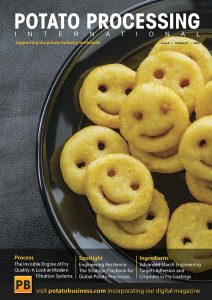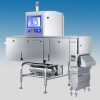Colnago Leads Potato Seed Innovation to Support Uruguay’s Small Farms

Uruguay is advancing efforts to secure its domestic potato supply by developing alternative seed multiplication systems tailored to smallholder farmers, amid persistent challenges in accessing high-quality seed.
The potato is a vital crop for Uruguay, underpinning both food security and the rural economy. However, many growers—particularly smaller, non-specialized farms—continue to face difficulties accessing clean, virus-free seed at an affordable price. The issue is compounded by the clonal nature of traditional propagation, which increases the risk of disease accumulation and degeneration.
While the National Institute of Agricultural Research (INIA) has introduced disease-resistant cultivars in recent years, including varieties resilient to Phytophthora infestans and Alternaria solani, the structural limitations of the seed supply chain remain a significant barrier.
In response, researchers are trialling novel, more accessible seed multiplication techniques with the potential to shift Uruguay’s reliance away from expensive and sometimes poorly adapted imported seed.
Dr. Paula Colnago, agronomist at the South Regional Experiment Center, Faculty of Agronomy, Universidad de la República, is leading this initiative. Her work, supported in part by her recent participation at the World Potato Congress (WPC) in Adelaide, Australia, focuses on technologies such as semi-autotrophic hydroponics (SAH) and true potato seed (TPS), both of which offer potential to decentralize seed production.
According to materials presented by Colnago during the WPC, SAH uses micropropagated plantlets grown under controlled nutrient systems to produce minitubers. Although this technique has been trialed successfully in regions such as India and sub-Saharan Africa, its implementation in Uruguay is recent.
TPS, meanwhile, provides greater genetic variability, reducing susceptibility to disease while offering logistical advantages. Unlike clonal seed tubers, TPS is easier to store, less prone to degeneration, and less costly to transport—key considerations for geographically isolated or resource-constrained farms.
Between 2022 and 2024, Colnago’s research team conducted comparative field trials using the locally bred INIA Arequita variety and TPS progenies across diverse growing conditions. These trials were implemented in partnership with the Uruguayan Agroecology Network, a grassroots farmer-led organization. Farmers were actively involved in managing the trials, collecting data, and refining the methodologies to ensure practical outcomes.
Speaking at the Congress, Colnago emphasized the value of international exchange in addressing shared constraints. “There’s a lot of overlap in the challenges we face as a global potato industry, and discussing creative solutions implemented in each region can be invaluable at future Congresses,” she said.
Reflecting on the industry-wide emphasis on climate resilience and reduced input dependency, she noted: “Improving the sustainability of potato farming, particularly in the areas of reducing inputs like fertilizers and crop protectants, was an area I hope to explore further in my own work.”
The project’s next phase, running from 2025 to 2028, will expand on early successes, including the active cultivation of TPS-based seed by six participating farms. Plans are underway to scale the initiative further through new collaborations with the National Committee for Rural Development and the Native and Creole Seed Network of Uruguay.
Colnago remains optimistic about the long-term impact of the work. “By developing sustainable, locally adapted seed multiplication systems, we can improve the resilience of potato family farming systems and help support food security in Uruguay for years to come,” she said. “Uruguay is on track to create a more sustainable, resilient potato production system that supports the country’s food security and agricultural economy.”

















